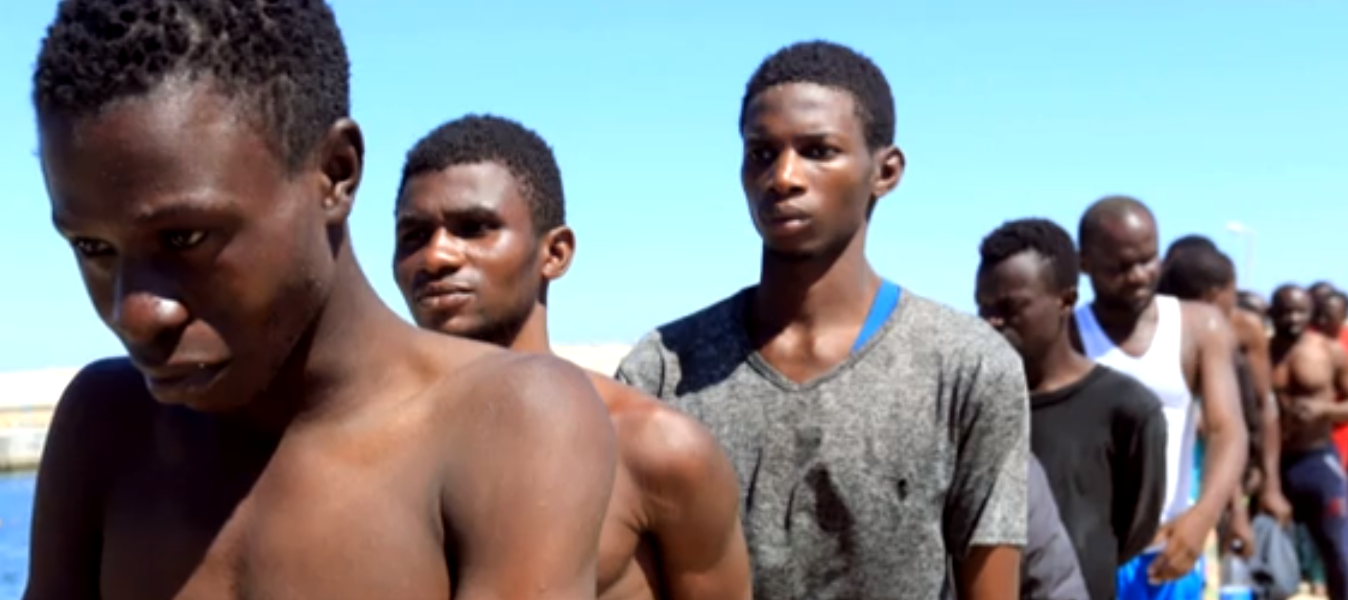UN sanctions human traffickers acting as paid EU coast guards
UN sanctions has been imposed on six individulas caught engaging in human trafficking while pretending to be part of a European Union-funded coast guard operation.
Published: June 9, 2018, 9:24 am
The Guardian reported on Friday that the United Nations sanctioned the six individiuals for human trafficking even though they had been receiving money from the EU to stop illegal migrants from making the journey to Europe.
The blacklisted six are four Libyans, including the head of a regional coast guard unit, and two Eritrean nationals.
In 2017, Libya made a deal with the Italian Interior Ministry to run to coast guard service in the chaos-ridden country to stem the tide of illegals reaching Italy.
One of the individuals targeted, is Abd Al Rahman al-Milad, is a former militia leader and current head of the coast guard in Zawiyah. The town has been blamed by NGOs for turning illegal EU-bound boats back to land while UN experts accused Milad and other coast guard members of being “directly involved in the sinking of migrant boats using firearms”.
But it now appears that Milad has been playing a double game, using the coast guard duty as a cover to sink the boats of his competitors, while expanding his own human trafficking operation.
Another individual sanctioned by the UN, Ahmad Oumar al-Dabbashi, believed to be a central figure in the deal struck with the Italian government, is in charge of a militia that reportedly controls “departure areas for migrants, camps, safe houses and boats”.
The Libyan is accused of exposing migrants — including minors — to “brutal conditions and sometimes fatal circumstances on land and at sea,” according to the UN.
Mus’ab Abu-Qarin, a third individual, has been accused of organising a human trafficking journey in 2015 in which 800 people drowned after their boat sank off the Libyan coast. It has been noted as the greatest single mass drowning disaster in the Mediterranean.
Some 45 000 people have been smuggled to the European coast in 2015 alone by Abu-Qarin, despite him being part of the 2017 deal with the Italian government, the UN believes.
“These sanctions will help stop the flow of blood money… It will prevent them from buying protection in Libya which in turn can destabilise the region,” the Dutch national prosecutor’s office said in a statement.
This is the first time ever that traffickers have been put on an international sanctions list.
The sanctions include a global travel ban and an assets freeze, following an internationally-backed Dutch proposal. The proposal was presented on 1 May and also examined by Russia before the green-light was given.
According to the African Union, there are an estimated 400 000 to 700 000 migrants in more than 40 detention camps across Libya, being held in inhumane conditions by traffickers, many waiting to be sold at slave auctions.
All rights reserved. You have permission to quote freely from the articles provided that the source (www.freewestmedia.com) is given. Photos may not be used without our consent.
Consider donating to support our work
Help us to produce more articles like this. FreeWestMedia is depending on donations from our readers to keep going. With your help, we expose the mainstream fake news agenda.
Keep your language polite. Readers from many different countries visit and contribute to Free West Media and we must therefore obey the rules in, for example, Germany. Illegal content will be deleted.
If you have been approved to post comments without preview from FWM, you are responsible for violations of any law. This means that FWM may be forced to cooperate with authorities in a possible crime investigation.
If your comments are subject to preview by FWM, please be patient. We continually review comments but depending on the time of day it can take up to several hours before your comment is reviewed.
We reserve the right to delete comments that are offensive, contain slander or foul language, or are irrelevant to the discussion.






